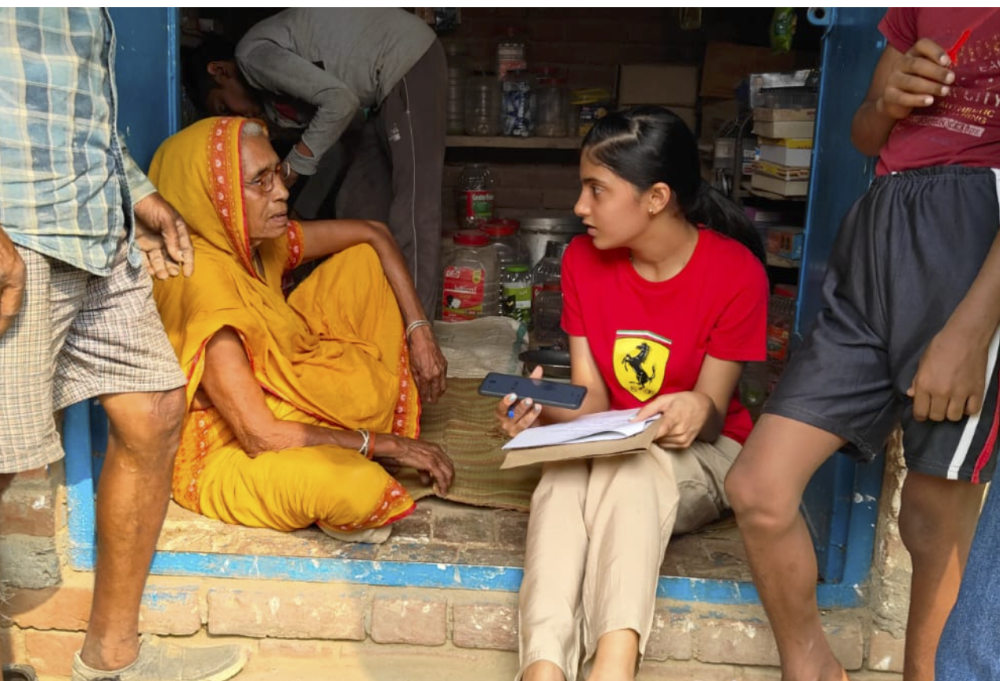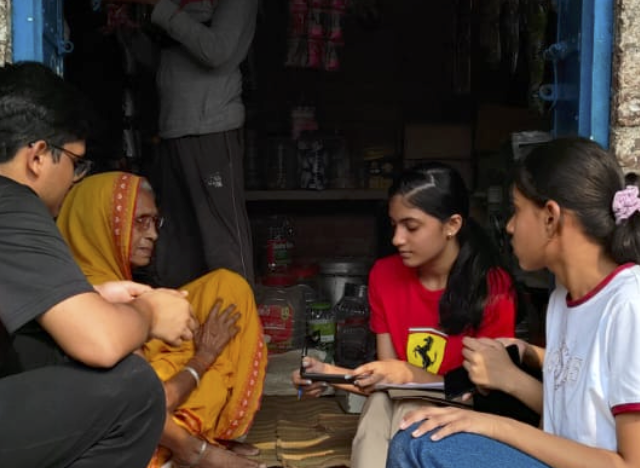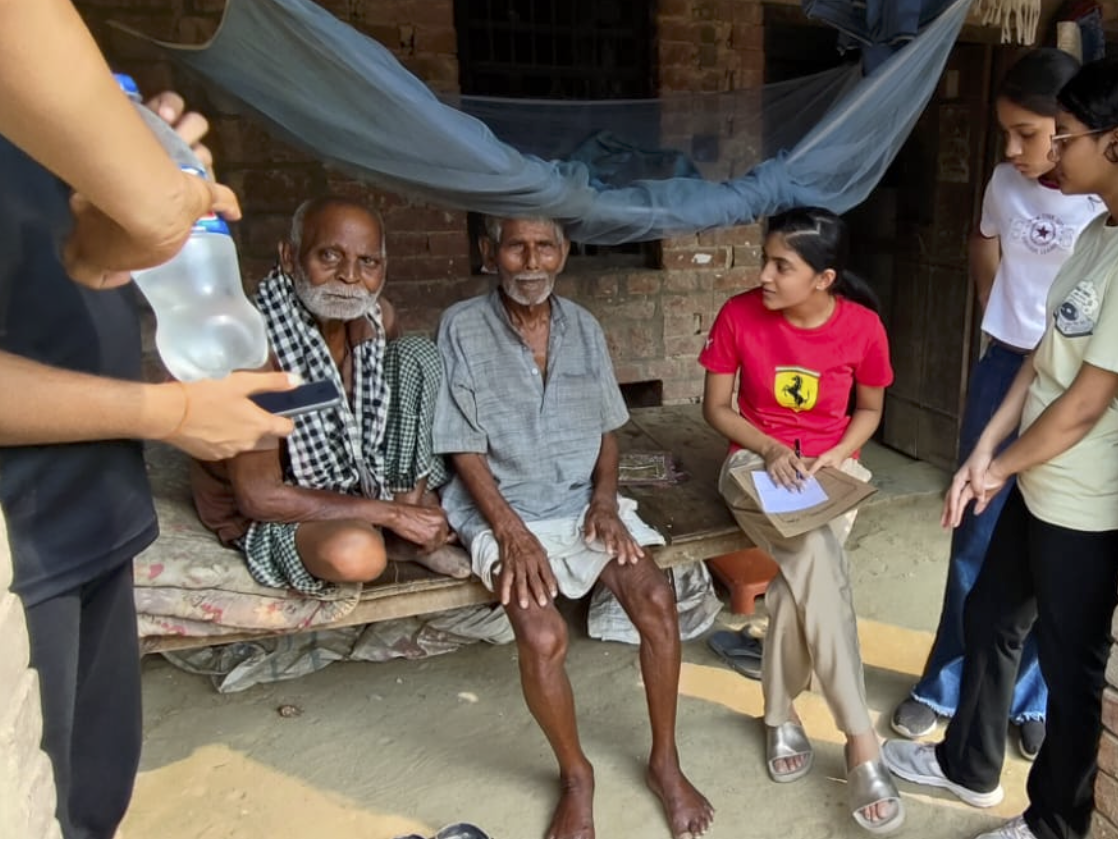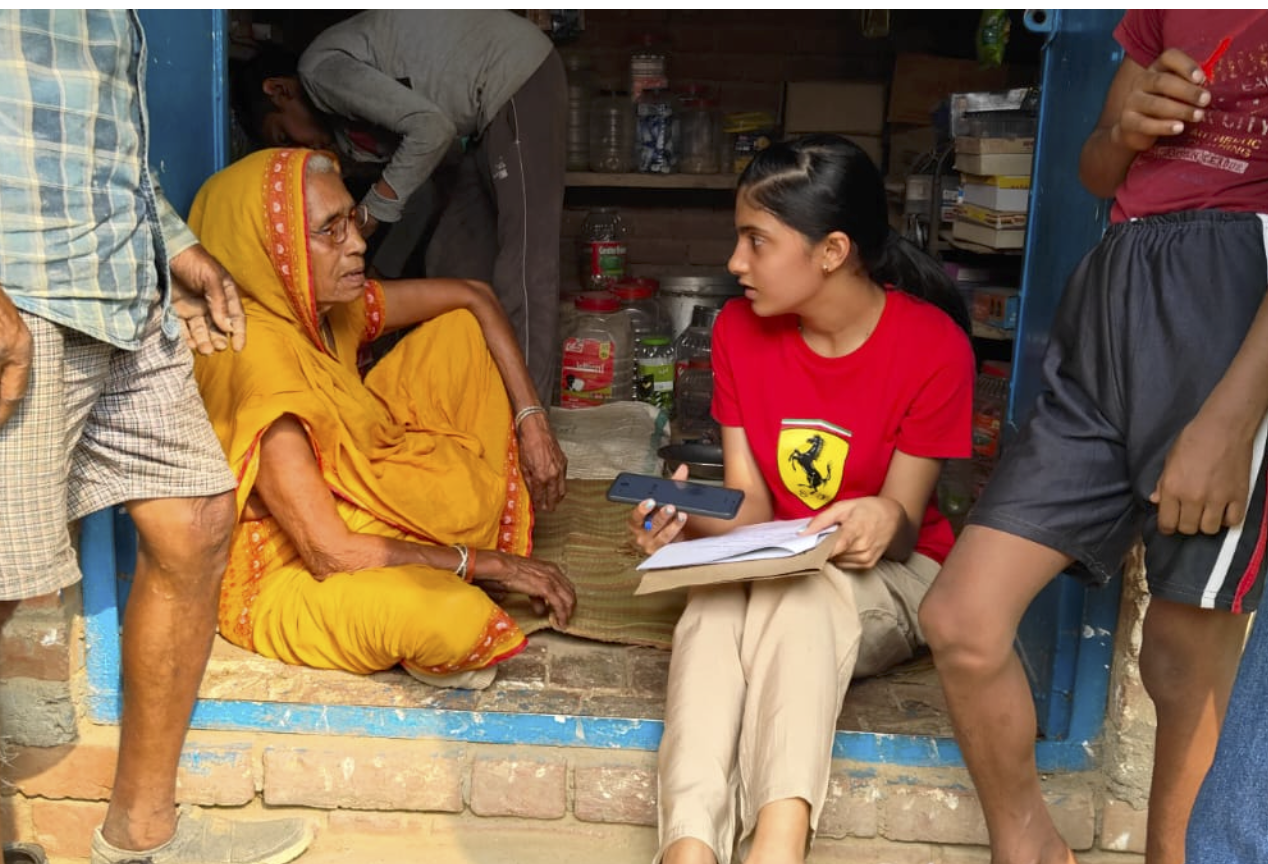
A King Constantine Medal Story – Arusha Singh, The Cathedral and John Connon School
Arusha Singh, from The Cathedral and John Connon School in India, has been awarded this year’s King Constantine Medal from the school for confronting issues of injustice faced by Mumbai’s street hawkers and widows in rural Fatehpur.
I have always believed that every person deserves dignity, fairness, and the chance to be heard. This belief was strengthened when I met Smt Sunita Devi, a widow from my native village, Bairagi Kheda. Her family owned less than an acre of land, and her husband had suffered from oral cancer for more than five years, undergoing two surgeries before passing away in 2024. During his illness, Sunita managed the farm, cared for the family, and ran between hospitals for treatment. Meanwhile, her daughter had to give up school to take on household chores. After her husband’s death, Sunita became even more vulnerable, facing a community that offers little support to widows. Being illiterate, she could not navigate the systems meant to help her. I feared that her daughter would be trapped in the same cycle of poverty and limited opportunity. I helped Sunita access the widow pension of Rs. 1000 per month, and witnessing her struggle instilled in me profound gratitude and humility. Her story reinforced my resolve to support women in education and literacy.
In Mumbai, I worked closely with street hawkers to understand their daily struggles — the long hours, financial hardships, and constant uncertainty caused by licensing policies. Many of them were unable to obtain licences, leaving their livelihoods in jeopardy.
To give them a platform, I interviewed twelve hawkers and shared their stories through a podcast series on Spotify and YouTube. Protecting their trust was paramount, so I made sure not to reveal names or faces. At the same time, I also interviewed municipal officials to understand their perspective, before writing a policy paper that highlighted the flaws in the system and submitting it to the authorities. This taught me that social media, when used responsibly, can amplify marginalised voices and that policy change begins with dialogue.
Building trust was not easy. Many of the hawkers and widows I met could not read or write, and technical terms often created barriers. I learned to explain myself simply, to rephrase ideas, and to communicate in ways they could connect with. Slowly, they began to open up. I helped widows complete forms using their Aadhaar details and bank information, ensuring their applications were submitted correctly. In those moments, I realised that service is as much about patience and respect as it is about action.
My next project took me to Fatehpur, my hometown in Uttar Pradesh. There, I met a widow whose husband had died of cancer, leaving her with nothing. She had been waiting for six months for the Vidhwa Pension Yojna to provide her with support, but the system had failed her. Her story motivated me to investigate pension schemes across four villages. I spoke with recipients, consulted panchayat leaders, and helped ten widows access the pensions they were entitled to. One panchayat pradhan even gave me a letter of recommendation in recognition of this work.
Through this initiative, which I have called Jan Niti Jagruti, I gained a deeper understanding of how bureaucracy often hinders the most vulnerable. It also taught me that responsibility does not end with highlighting problems — it means finding solutions, supporting individuals directly, and using every tool available, from policy papers to podcasts, to advocate for justice.
Receiving the King Constantine Medal has been an honour. For me, it is not only recognition of my efforts but also validation of the struggles faced by the hawkers, widows, and disadvantaged groups I have worked alongside. It reaffirms my belief that empathy and action, led by young people, can create real change. Moving forwards, I aim to expand my work to more villages, documenting cases of pension delays, supporting applications, and using my growing experience in politics and policymaking to advocate for reforms.
Most importantly, I will continue to listen to those who have been neglected or silenced, and to act with responsibility to ensure their voices are heard.



If you are inspired by Arusha’s story, here are four steps to consider:
Step 1: Listen and Understand the Community
- Begin by spending time with the people you want to support.
- Ask questions, listen to their stories, and try to understand their daily struggles.
- Build trust by being respectful, patient, and willing to explain things clearly — especially if technical terms or paperwork are involved.
Step 2: Amplify Voices Responsibly
- Create safe spaces for people to share their experiences — this could be through podcasts, videos, blogs, or school platforms.
- Protect identities if needed, so people feel safe speaking honestly.
- Balance perspectives by also engaging with decision-makers or officials, so you understand both sides of the issue.
Step 3: Take Practical Action
- Identify specific ways to support the community directly, such as helping with forms, connecting them to services, or guiding them through systems.
- Work on both short-term help (immediate needs) and longer-term impact (policy papers, raising awareness, or proposing solutions).
- Use your skills — writing, technology, leadership — to make the process easier for others
Step 4: Reflect, Share, and Sustain
- After each project, reflect on what you learned about leadership, responsibility, and empathy.
- Share your experiences so that others can be inspired and join in.
- Plan how to continue or expand your work, so that the project does not stop with a single event but creates lasting change.
